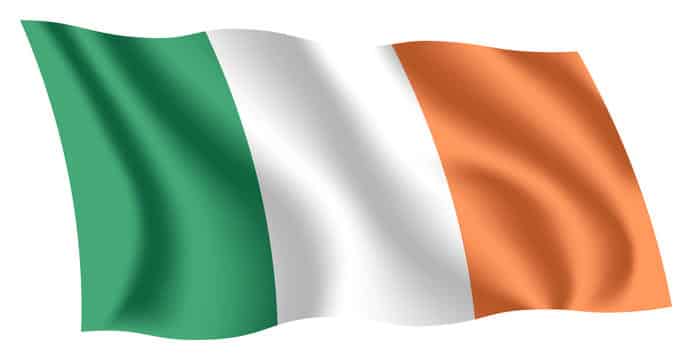Financial Advice and Investment Planning for Irish expats – that will be the topic of today’s article.
Nothing written here should be considered as legal, financial, tax, or any other kind of advice.
For any questions, or if you are looking to invest as an expat, you can contact me using this form, or via the WhatsApp function below.
Introduction

To better understand the topic, let us have a detailed look at some important definitions and some crucial information that is considered useful for expats.
Expat – An ‘Expat’, which is short for ‘Expatriate’, is a person living outside his/her country of origin. People move outside of their native country for various purposes, out of which, some of the most common include Employment, Education, Retirement, etc.
As we are going to discuss the investment options for Irish expats, it is also better if we discuss some relevant aspects like expat advice for those living in Ireland, investment options for Irish expats returning to Ireland, etc.
So, let us get into some of the important information regarding this topic without wasting any more time.
Important Information about Ireland:
Now, we are going to discuss some major factors that are helpful for the people who are expats and are living in Ireland and people who are Irish expats and are returning to Ireland.
Not just in Ireland, but expat living anywhere in the world would have to obtain some useful information regarding accommodation, healthcare, education, banking, taxes, etc.
By doing so, they can easily cope with the country’s situation and won’t feel any sort of discomfort due to the lack of information.
One of the biggest challenges faced by expats is regarding their financial needs such as banking, taxes, investments, etc.
Let us now have a glimpse of all the necessary information that we think is necessary for an expat living in Ireland.
Ireland is a country located in the North Atlantic and is the third-largest country in Europe with a population of around 5.4 million. However, Northern Ireland is a part that is under the administration of the UK.

Currency – The currency of Ireland is the euro (EUR), which is the official currency of 19 of the 27 member countries of Europe, which is known as the Eurozone or the Euro Area.
The following denominations of the Euro are available in Ireland, which has been listed below.
1.Notes:
- 5 EUR
- 10 EUR
- 20 EUR
- 50 EUR
- 100 EUR
- 200 EUR
- 500 EUR
2.Coins:
- 1 EUR
- 2 EUR
- 1 cent
- 2 cents
- 5 cents
- 10 cents
- 50 cents
Cost of Living – Another important thing that every expat should know about is the cost of living. It has been estimated that most of the expats living in Ireland earn hefty salaries (with an average annual salary of 38,500 EUR).
However, an individual’s expenses can go out of hand is they want private healthcare and exceptional private education for their families.
Even though it is not mandatory, most expats do opt for private education and healthcare. Eating in a nice restaurant can be more expensive than you can expect, especially if you live in the city center.
- Accommodation:

A single bedroom apartment would cost around 1,100 EUR to 1,700 EUR in a city center, and 1,000 EUR to 1,400 EUR if it is located outside the city center.
On the other hand, a 3-bedroom apartment would cost around 1,900 EUR to 3,100 EUR in a city center and 1,500 EUR to 2,400 EUR outside a city center.
1.Groceries:
- Milk: €1 to €1.2
- Bread: €1.50
- Chicken: €8 to €8.60
- Eggs(dozen): €2.90 to €3
- Beef (1kg): €10
- Cheese (1kg): €8
- Apples (1kg): €2.2
- Bananas (1kg): €1.8
- Oranges (1kg): €2.2
- Water (1.5ltr): €1.3
- Wine: €10
2.Transport:
- Taxi cost (per km): €1.35 to €1.50
- Bus fare: €2.60 to €3
- Petrol (1ltr): €1.40
- Monthly pass (local): €100
3. Utilities:
- Mobile bill (per minute): €0.28 to €0.32
- Basic Utilities: €150 to €160
- Internet (per month): €50
Banking – People should also pay attention to the banking services, especially while living in other countries.
While opting for banking services, you must make sure that the money can be easily transferred to other countries and accessible while living in that country.
While choosing a bank, you must remember that your family or friends still live in your country, and you may have to transfer money between the countries. In such cases, choose a bank that allows you to make money transfers easily.
Instead of just going ahead with some local bank, it is wise to acquire the services from a bank that is financially secure. Therefore, we suggest you opt for a bank having an international presence and comply with global regulations.
In most cases, expats choose an offshore bank, which is usually located outside the country in a low tax jurisdiction while having political and economic stability.
Many expats prefer offshore banking as it allows them to save their money and invest it in a tax-efficient manner.
One should always remember that evading tax is a crime regardless of the country you live in. Therefore, a person should always disclose all the necessary income details to the tax authorities and pay tax on time.
While opening a bank account as an expat in Ireland, the process might involve a few extra steps compared to the process of opening a bank account as a resident.
While some banks allow individuals to open an account online, even for expats, some might require the person to visit a branch of the bank. The documents needed while opening a bank account in Ireland are the proof of identity and the proof of address.
If you were able to find a bank that allows you to complete the process of creating a bank account online, there are few ways by which you can prove to the bank that your documents are valid.
- Firstly, the most common method of certifying the validity of the required documents is by submitting notarized copies of your documents.
- If not possible, you can send an official letter that has been obtained from your embassy.
- You even submit a selfie while holding a passport, which can suffice for your proof of identity.
Having discussed all the information concerning banking in Ireland, now we will have a look at some of the best banks in Ireland.
- Best National Banks in Ireland:
- Bank of Ireland
- Allied Irish Banks (AIB)
- Ulster Bank
- DePfa Bank Ireland
- Permanent TSB
- Best International Banks in Ireland:
- Citibank Europe
- KBC Bank
- Danske Bank
- Bank of Montreal Ireland PLC.
- Best Online Banks in Ireland:
- Allied Irish Banks (AIB)
- N26
- KBC Bank
- Permanent TSB
- Bank of Ireland
Taxation – Another important financial aspect that we are going to discuss is taxation in Ireland. When a person meets certain criteria, he or she would be considered a tax resident of Ireland, which is provided below.
- A person who lives for a period of 183 days in a specific tax year.
- A person who lives for an overall period of 280 days in Ireland over two consecutive tax years, while living for a period of at least 30 days in the second year.
- An expat who belongs to any one of the categories among residence, ordinary residence, and domicile.
- According to the aggregation test, an individual is considered a tax resident when he or she comes under the resident status in the second tax year. It would be considered a day present in Ireland, even if the person lives for a specific part of the day like morning or evening.
- Ordinary residence is when a person is residing in Ireland for a tax year after living in the state for a period of 3 consecutive years.
- Domicile is a rather permanent situation compared to the residence. Most people would be of the same domicile for their entire lives even after living overseas for a substantial period.
- Domicile is acquired at birth from the individual’s father.
- When the person is non-domiciled, there are some noteworthy tax planning opportunities, and advice is needed for these.
- If a person is a resident, ordinarily resident, and non-domiciled, then he or she is taxable for the international employment income they acquire while performing the tasks from Ireland.
- Tax Rates:
Single individuals, widowed people with no dependent children are taxed at a rate of 20% for an income up to €35,300 and at a rate of 40% over that income.
A married couple, where a single individual is earning income, would be taxed at a rate of 20% for an income up to €44,300 and at a rate of 40% over that income.
A married couple, where both the partners are earning an income of at least €26,300 each, is taxed at a rate of 20% for an income of up to €70,600 and at a rate of 40% over that income.
People having an age of 65 or more are exempt from personal income tax. However, these people are also liable for taxes if their income exceeds a specific limit.
Mortgages – It might be a bit hard for people to acquire a mortgage in Ireland as an expat, and therefore, the process of acquiring a mortgage should be understood by expats with caution.
Usually, banks lend an amount of around 65% of the buying price of the house and the individual would have to take care of the remaining 35%.
Even non-residents could acquire a mortgage in Ireland, for which, they would have to be either looking for holiday accommodation or an Irish person looking to move back to Ireland and live in the property for a short or medium term.
Interest rates range between 2.75% and 3.2% (variable or fixed depending on certain terms and conditions).
Irish-based lenders and mortgages must abide by the rules and regulations that have been set up by the Central Bank of Ireland.
Pensions – As everyone knows, a pension is a long-term savings contribution along with tax advantages. People in Ireland have tax relief at a marginal rate of 40%, where there is no relief on Pay Related Social Insurance (PRSI) and Universal Social Charge (USC).
To able to get qualified in a pension scheme, the details are as follows:
- Voluntary contributions while living overseas:
- Having paid 10 years of contributions.
- Having claimed within 5 years of leaving.
- 6.6% gross earnings in a year before leaving the country or €500 if the individual is self-employed in a year before leaving the country.
- The individual should have left the country in 2015 or after that.
- Total Contributions Approach (TCA):
- In order to get a full pension, there is a requirement for 40 years or 2,080 contributions to be made.
The current pension plan is €248 per week or €12,956 per year. Therefore, to be a part of that pension scheme, it would cost €300,000 and at least €7,500 should be contributed every year.
Investments for Irish Expats:
The investment sector in Ireland is comprised of various providers, investment products, and investment options.
For instance, institutions such as Standard Life Ireland accept lump-sum investments and savings plans from investors living abroad and are habitually resident in Ireland.
Investment vehicles such as shares, bonds, and offshore investments are taxed at 33% (capital gains tax) on the sale of those respective assets. The income from such investments is taxed at a marginal rate (income tax, USC, and PRSI).
Hence, it is highly important to create a portfolio based on your risk profile and investment goals.
Let us now have a brief look at some of the important investment opportunities for Irish expats.
1. Cash Accumulation:
Most people often have a doubt regarding cash accumulation, i.e., what is the best possible way to accumulate cash, and is it a profitable one in terms of capital growth?
Well, yes. In a sort of way. You can use a deposit account where the growth is determined on the basis of your time frame and the necessity for liquidity.
If you will be needing access to the funds in your deposit account within the next five years, then it is better if you go for a deposit account with easy access. By doing so, you will have a risk-free investment that is easily accessible.
However, as most people are familiar, the profits offered by a deposit account are way too low compared to many other types of investments. It is wise to build a diversified portfolio consisting of assets based on your risk tolerance rather than just relying on a single mode of investment.
When you are depositing the money in the country you reside in currently, we highly recommend that you get familiar with the deposit guarantee scheme or any other protection schemes before making a deposit.
Even though it may sound a bit negative to most people, it is better to know about the details regarding what happens to your deposit account if you pass away while living in that country.
One of the best methods is to opt for an Irish bank account, which is known to provide more security to the customers.
2. Property Investments:
People that are trying to invest in properties usually do so for various reasons such as buying a property so that they can have it when they return, gain profits from it by renting it out, make it a retirement home, etc.
Whatever the reason may be, investing in real estate can prove out to be beneficial if done right. Whatever the reason is, a mortgage for buying a home can be acquired in Ireland even though the process is a bit complex.
There is a great demand in Ireland for social housing as well as private housing. Keeping that in mind, a Loan Note Investment with a rate of 4% to 6% p.a. and offering fixed income or Irish Property-related private and public residential development projects.
According to the research conducted by ESRI, the impact of COVID-19 on the housing market is completed in October 2020.
It was stated that the long-lasting impact of the pandemic has made things worse while disrupting the balance between the demand and supply in the housing market that already existed.
While the demand for housing in the year 2019 was around 30,000, the housing delivery was around 21,000 which is way short of the existential demand.
Before the pandemic outbreak, the expected housing completions in the year 2020 was around 24,500 while there was only delivery of 13,394 units in the first three quarters.
Therefore, ESRI describes that the best policy for the government is to increase the social and affordable housing in the next few months or a couple of years before things become drastic because of the structural imbalance.
3. Investing excess money:
You can invest the excess amount of money in different ways such as investing a huge amount of money or investing a small amount of money every month.
With the help of investment services offered by us, you can make a huge investment at once (lump sum investment) such as $50,000 or $100,000, or even more at once.
These services are considered to be ideal for customers who have a high net worth and want to increase their wealth or achieve their financial goals.
Otherwise, you can just invest an amount as low as $500 or $1,000, or even as low as $200 depending on your financial situation and be able to overcome financial difficulties and achieve your investment objectives.
Either way, you will be able to have substantial financial support by the time you return to Ireland. It would be beneficial for you even if you are an expat living in Ireland.
However, when you are investing a huge amount or contributing a small amount every month, we highly suggest you not opt for frequent withdrawals. Moreover, set your goals for the long-term instead of the short-term as it would be advantageous for leading a financially stable life.
4. Offshore investing:
For beginners, even investing in Ireland as an Irish expat living abroad would be something similar to offshore investing. However, that’s not the case that is mentioned here.
By offshore investing, we mean that you invest in countries that are considered to be low tax jurisdictions while maintaining economic and financial stability.
However, like most other types of investments, offshore investing is a process that is considered to be advantageous and accessible to affluent investors.
Some benefits of offshore investing other than tax benefits are security, privacy, and access to a wide range of investments. As for security, your assets are protected by the asset protection scheme of that country/jurisdiction.
Coming to privacy, your tax authorities gather all your financial information from the respective banks and financial institutions of the jurisdiction in which you live. However, such entities of other regions have no obligation of providing such information to your tax authorities.
Nevertheless, if you think of this as a good way to evade taxes, then you are in an utter misunderstanding. Well, countries have a unique way of finding people who evade taxes and such situations have been portrayed in various Hollywood movies.
You might even be familiar with the situation when you evade taxes, especially if you are a movie fanatic.
This privacy and anonymity would come in handy when you are living in a country with uncertain economic stability, or you don’t completely trust the country’s government (country of residence).
Even though this might sound a bit odd, it is the truth in various countries because not just expats but even the residents are unsure whether or not to trust their government.
Therefore, they don’t want to be vulnerable to their country’s government and want to invest in their own way. But we still suggest you pay your taxes on time regarding your investments.
Finally, we said about access to a wide range of investment opportunities, right? Well, some of you might be wondering that the investment opportunities are the same all over the world.
That is not all true because some countries offer access to some specific types of investments, whereas some don’t. A good example of this situation is cryptocurrency because it is available in some countries while some countries have regulations on it or completely banned it.
There are some drawbacks to investing offshore as well because nowadays offshore jurisdictions that offer various types of investment opportunities are being subject to scrutiny, especially related to regulations.
In such cases, there is a possibility that your account might probably get frozen when the relevant authorities think that you are involved with some kind of suspicious activity.
The costs of investing offshore are a bit higher compared to the costs involved while investing in the country of residence. This can be a bit complex for most investors, and therefore, we recommend you acquire investment advice from a best-in-class investment planner like us.
5. Managed Funds, ETFs, etc.
Managed funds, ETFs, and other similar investment vehicles offer returns of around 3% to 8% annually and are suitable for all types of investors based on their risk profile and investment period.
Regardless of the fluctuations in the markets, the previous performance of such investments has proven that people who opt to invest for a longer period have gained significant profits.
6. Capital Protection Funds:
Some traditional investment options such as stocks, shares, commodities, etc., are also somewhat beneficial for the investors and offer returns of around 2% to 4% while providing 80% capital protection.
This means, if something goes south in a drastic manner then 80% of your invested capital would still be out of danger’s way.
It is, however, advantageous if you consider diversifying your portfolio based on some important factors such as your risk tolerance, investment period, investment goals, financial stability, etc.
7. Retirement planning:
While you are working abroad, you might be worried about things such as your pension from the employment or state, or you might be troubled while thinking about the accessibility.
Retirement planning is such a complex task and depends on various aspects such as the retirement goals, the number of years of employment left, the amount invested so far, etc.
Considering these things, it may be a bit hard for people to take care of their daily lives, their work, etc., and still get involved with aspects such as investments and retirement.
If you have a substantial amount of wealth and want assistance with the process of retirement planning or investment management, then we can provide you with the best financial solutions.
Returning to Ireland:
It is wise to get familiar with the taxation details as prior as 12 months before arriving in Ireland.
We have provided some useful tax information in this article itself, yet it is better to check again if there have been any new updates in the tax rates or regulations.
If you consider repatriation or liquidating your assets way before you plan on moving to Ireland, you might end up paying more commissions and even leave out some possible returns.
Not only that but you might also be taxed on the money that you are considering repatriating into Ireland. Therefore, it is better if you gain some tax advice regarding your assets before you move back to Ireland.
You don’t have to worry about having access to investment platforms located outside Ireland because Ireland now has access to various types of investment platforms to which you had access while living abroad.
You can bring back your employment pensions or any other private pensions to Ireland, yet there may be some possible regulations in the country that you reside.
In some particular cases, if the person from Ireland has a pension that is recognized, then the pension can be transferred without incurring any taxes. If else, taxes may incur, and the pension might not be as profitable as it should be.
However, in most cases, a person can bring back their pension to Ireland and avail of a tax credit in Ireland for any tax withheld at source while they were living overseas.

Bottom Line:
The aspects related to financial management and investment planning might be a bit hard for people to do on their own. If you are an individual who has an advanced level of knowledge and experience, then you can do it.
Nevertheless, if you are completely new to these aspects, then you will definitely need the assistance of an investment planner or financial advisor like us to help you with all of your financial aspects.
There might be some people who also need such guidance or assistance as they might not have the necessary time. They should also acquire relevant services from a reputed professional.
If you are a person with a high net worth and need wealth management services, or you are a person looking for financial advice/investment portfolio creation, then we got you covered.
Fill out your details and acquire the best-in-class financial solutions offered by us.
That being said, we hope that we were able to clarify all your doubts regarding this topic, and if not, please feel free to approach us.
Pained by financial indecision? Want to invest with Adam?
Adam is an internationally recognized author on financial matters, with over 281.8 million answers views on Quora.com and a widely sold book on Amazon



